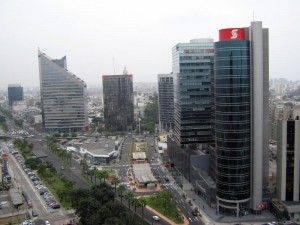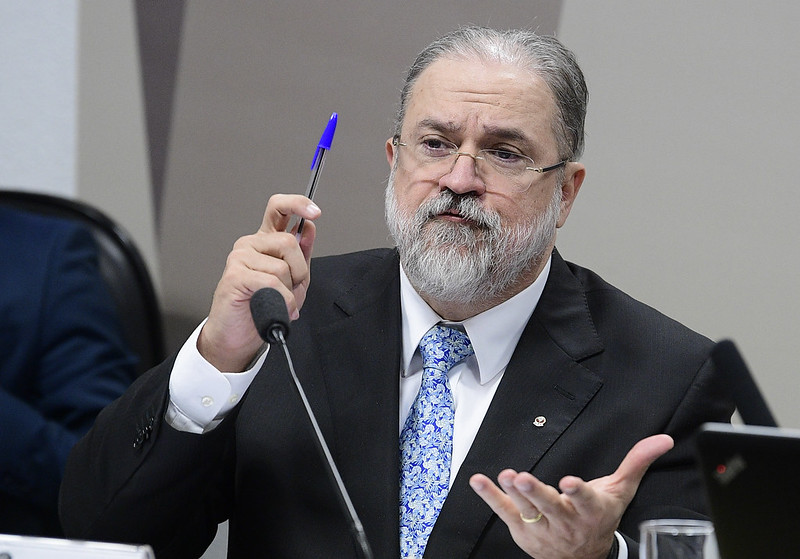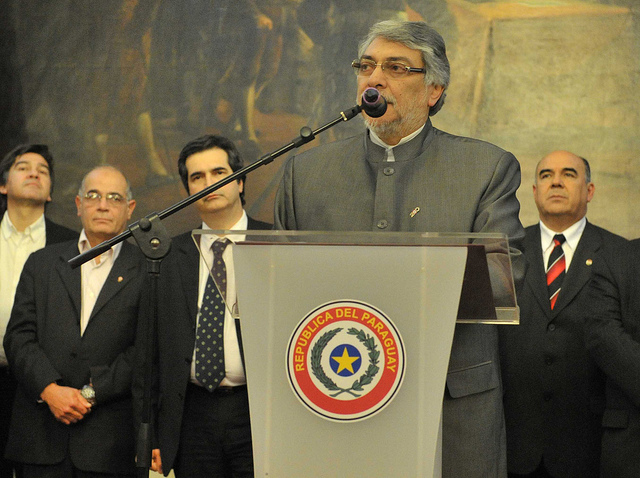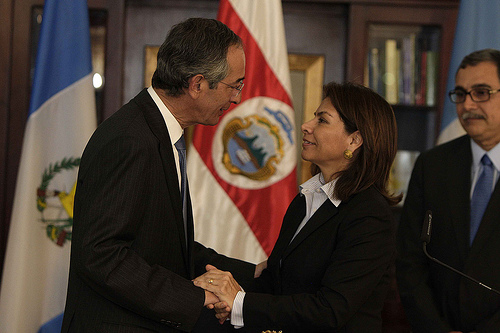
Latin America: Week in Review, Peru
Peru’s Stock Market Plummets On News Of Ollanta Humala’s Victory
June 7, 2011 By Staff
Today in Latin America
Top Story — Peru’s stock exchange plummeted a record 12.5 percent and closed early after leftwing nationalist Ollanta Humala definitively won the country’s runoff presidential election Monday.
Mining companies took the biggest plunge, as investors worried that Humala may disrupt some $35 billion in investments over the next decade that current President Alan García has lined up in the sector. The currency and bond markets also dropped.
Investors were shaken by Humala’s reputation as a strident leftist, which he gained during a failed 2006 presidential bid. Humala has since moderated his politics and says he will increase taxes on foreign mining companies, but will not nationalize them.
Peru’s electoral authorities have yet to formally announce the winner of Sunday’s race, but his opponent, conservative Keiko Fujimori, conceded defeat on Monday.
“I recognize his triumph,” Fujimori said Monday, according to Bloomberg. “It’s important that the country continues its economic course and that it has clear rules.”
Fujmori went to visit Humala personally Monday evening at the Los Delfines Hotel in Lima to congratulate him.
The two may soon find each other at odds, however — Vice President-elect Omar Chehade says the new government is considering the possibility of moving Keiko Fujimori’s father Alberto to a regular prison, rather than the police station where he has been jailed in relatively comfortable conditions since 2008.
Alberto Fujimori, an authoritarian president who dissolved Congress in 1992, is serving time for human rights violations and corruption charges.
Humala’s party coalition Gana Peru announced the creation of a 20-person team to select a new cabinet and coordinate the government’s transition.
First-round presidential candidate Pedro Pablo Kuczynski, a centrist, said Humala should select an economic minister “as soon as possible.”
Headlines from the Western Hemisphere
North America
- Massachusetts governor Deval Patrick refused Monday to sign the federal government’s Secure Communities immigration enforcement program.
- The Caravan for Peace, a traveling anti-violence protest, kicked off on Saturday in Cuernavaca, and will go through 12 cities in central and northern Mexico in the upcoming week.
- Mexico’s stocks plummeted Monday due to fears that Peru’s new president might raise taxes on its mining assets, which would hurt the mining company Grupo Mexico.
Caribbean
- The National Hurricane Center announced Monday that a broad low-pressure system in the Northwestern Caribbean has a 50-50 shot of becoming the season’s first tropical depression.
- Several days of heavy rain set off landslides, forced thousands of people to leave their homes and has been blamed for four deaths throughout the Caribbean.
Central America
- The presidents of Costa Rica and Guatemala rejected Sunday a recommendation from a committee of former Latin American presidents to legalize “soft” drugs.
- The 41st General Assembly of the Organization of American States (OAS) began Sunday in San Salvador, where one of the main topics of discussion will be the return of Honduras to the pan-American body.
- Salvadoran President Mauricio Funes announced last week a new plan for security in the country, including compulsory military service for 5,000 at-risk youth between the ages of 14 and 16 and a “security tax” for the wealthy.
Andes
- The presidents of Brazil and Venezuela agreed to maintain an accord to build a joint-financed oil refinery in the Brazilian state of Pernambuco.
- Colombian authorities have severely weakened the FARC main leader after killing 10 of his closest allies, officials said.
- Bolivian President Evo Morales’ government confirmed it has sent Congress a measure to ease the use of genetically modified foods.
Southern Cone
- Brazilian president Dilma Rousseff may chose Planning Minister Miriam Belchior to replace current Cabinet Chief Antonio Palocci, who is under investigation for corruption.
- Farmers and environmentalists in Uruguay are opposed to a $2.5 billion project to build an open-pit mine in Cerro Chato, which has not yet been approved by the Uruguayan government.
Image:WEBSTER1991 @ Wikicommons.






